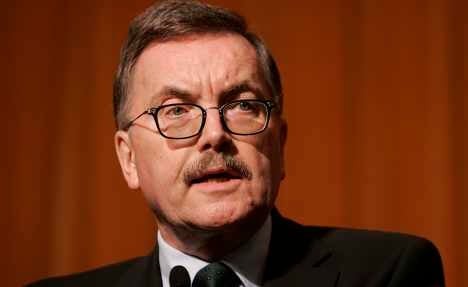This is the first time Stark has made such an admission, the magazine said. Previously he said he was leaving the bank for “personal reasons.” Stark will leave the bank at the end of the year.
Stark said a big reason behind his decision to leave the bank is that he “was not happy with the way the currency union had developed.” He said politicians did not realize the seriousness of the euro problems in time, saying they “didn’t see it as an acute problem” when it already was. He said in the early days of the troubles, eurozone countries possessed policy instruments to fix the problems, but the depth of the troubles was not recognized.
Stark defended his consistent opposition to allowing the ECB to buy up state bonds. “This is not a solution,” he said, “even though around 90 percent of the self-named or actual experts around the world are calling for this.”
Those who point to the Federal Reserve in the United States as an example of how a central bank can buy up government debt do not understand the institutional framework in place in Europe, he said.
“A fundamental principle of this currency union is that the monetary financing of state debt via the ECB is not allowed,” Stark told the magazine. “Without this rule, there would not have been an economic and currency union.” Since May, 2010, the ECB has purchased about €210 billion in state bonds. Such purchases are limited and cannot be expanded, Stark said.
Still, the chief economist is pleased with the ECB’s work. “The ECB has completely fulfilled its job of maintaining price stability,” he told the magazine. “It also out pointed out in a timely manner troubled developments within the eurozone,” he said.
But Stark is unhappy with the developments in Greece. He said since Greece made some efforts at getting its debt under control, its reform tempo has slowed and efforts have been whittled down. Things are not better under the new Greek government, he added.
“Greece is making it too easy when it says that the country is suffering from a systematic crisis in Europe. You can’t put the guilt on someone else when you haven’t done your own homework,” Stark said.
The Local/mw



 Please whitelist us to continue reading.
Please whitelist us to continue reading.
Member comments